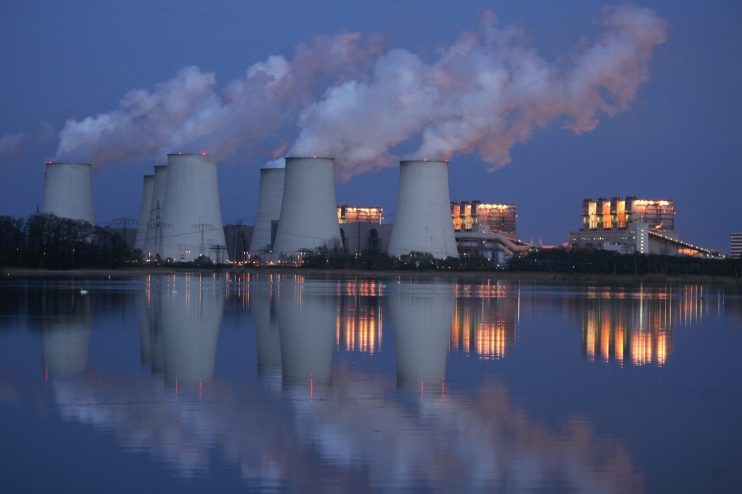UK fires up coal plants to keep country’s lights on amid cold winter snap

National Grid is relying on coal, the world’s dirtiest energy source, to keep the country’s lights on tonight as a cold snap and planned nuclear shutdowns in France put pressure on the UK’s energy supplies.
Its electricity system operator (NGESO) has maintained its order for two of the UK’s five emergency coal-fired generators to produce electricity – to ensure supplies to keep up with demand.
The two coal-powered units in West Burton, Lincolnshire, operated by EDF, began feeding into the national grid this afternoon.
National Grid wants to ensure there is enough electricity to go round as the North is hit by snow and ice.
Temperatures are expected to dip into minus figures tonight across the country, reaching as low as -15C in some parts of Scotland.
This has seen wind power generation dip significantly – falling to around 17 per cent of the UK’s generation mix.
Earlier this morning, National Grid put four of the coal units on standby and activated contingency plans in case margins came under pressure.
However, the electricity margin notice was cancelled after the two coal plants began producing electricity.
It has not yet demanded power from the two other units, operated by Drax, that it ordered to be warmed up.
This is first time that the reserve coal units have been used to generate power under the contingency plans, and follows multiple start-up orders this winter – only for the units to be stood down each time hours later.
Coal is the world’s dirtiest fossil fuel, responsible for over 0.3C of the 1C increase in global average temperatures with the highest carbon footprint of all energy types.
Currently, only two per cent of the country’s energy mix is made up of coal, chiefly from Kilroot Power Station in Northern Ireland.
Its previously dominant role has been replaced with gas and wind power over the previous decade.
However, five units have been left in reserve, their lifespans extended over winter, following a Russian supply squeeze on gas flows into Europe following Western sanctions after the country’s invasion of Ukraine .
National Grid previously asked suppliers to offer customers discounted bills in exchange for saving electricity during peak hours to reduce pressure on the UK’s creaking energy network – through what is known as the Demand Flexibility Service .
The service was utilised over two days on 23 and 24 January for the first time – although the need for a third day this month now appears to have been repealed.
Big Six supplier Octopus Energy has argued that this could be an alternative to using coal as an energy source – even as a backup source in times of supply shortages.
The DFS has paid out participating households and businesses across the country millions this winter for lowering their energy consumption when there is stress on the grid – typically in the evenings.
Alex Schoch, head of flexibility at Octopus, said: “National Grid’s new demand flexibility service is already offering a cheaper, more practical and sustainable solution to peaks in energy demand, while putting millions of pounds back into people’s pockets that would otherwise be paid to fossil fuel companies.
“Even during this cold snap, households can deliver the flexibility that’s needed, get paid for it and reduce costs for everyone.”
National Grid has declined to comment.